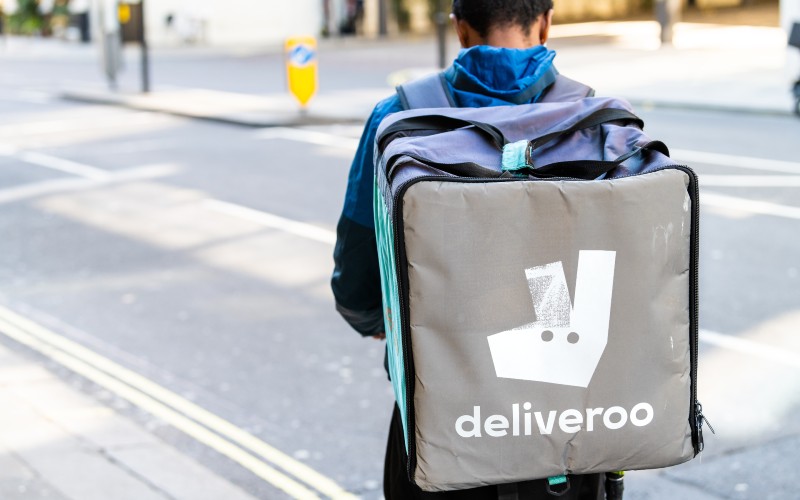
The Independent Workers Union of Great Britain (IWGB) made headlines recently after their campaign to highlight that some of their members had lost their jobs as a result of a faulty new GPS system which had been introduced by their employer. The system in question is blamed for sending them on impossible and even dangerous delivery routes leading to delays and in some cases, accusations of taking excessive detours. This situation seems to highlight once again the often-precarious position of these workers in the so-called “gig economy”.
The ‘gig-economy’ generally refers to a type of working arrangement dominated by independent contractors usually on zero-hour, freelance or short-term contracts. These individuals are generally low-paid and have comparatively little in the way of what most people understand as employment rights. Workers prepared to provide their services on this basis have been key to the success of many brands, some of which have become household names, particularly in the delivery industry.
Research by the think-tank Fair Work, highlighted that only 2 out of 11 UK gig economy platforms approached by them, guarantee the national living wage for their staff. Additionally, a government report on ‘The characteristics of those in the gig economy’, found that ‘24% of those aged 25 and over said that their hourly income from this work was less than £7.50 per hour’.
Employment status
The question of employment status is at the forefront of issues facing the industry. A 2021 case concerning the status of Deliveroo drivers saw the UK Court of Appeal rule they were indeed ‘self-employed’. Their lack of fixed hours and ability to login to an app and choose which hours they worked led the court to conclude they had enough control over their working schedule to be classed as self-employed. Deliveroo recently stated they would not consider their workers as employees unless there was a change in the law that obliged them to do so. A Deliveroo spokesperson stated that, “[our] model offers the genuine flexibility that is only compatible with self-employment, providing riders with the work they tell us they value”. Despite such a positive spin on the flexibility such work may offer, the reality for some according to a survey conducted by the Bureau of Investigative Journalism of Invoices stated that some workers earn as little as £2 an hour.
The case of Pimlico Plumbers Ltd and another v Smith represented some progress toward contractors being recognised as workers. In that case, which was the subject of several appeals, the Supreme Court eventually held that Mr. Smith, one of the company’s “self-employed” plumbers, ought to be classified as a worker within the wider meaning given in employment legislation such as the Employment Rights Act 1996. As a consequence, Mr. Smith was deemed entitled to protection under the Working Time Regulations 1998 and to receive the National Living Wage.
The case itself concerned Gary Smith who worked for Pimlico Plumbers as a heating-engineer under a contract that described him as an ‘independent contractor’. It was found he personally carried out work and services for Pimlico. Additionally, the Court agreed that Mr. Smith satisfied the requirement of worker because a) he did not have complete discretion to substitute another person to do his work, b) he was required to work a minimum number of hours per week, and c) Pimlico exercised control over him to the extent that he was not permitted to work for anyone else.
Finally, the more recent breakthrough case of Uber v Aslam and Others redefined Uber drivers’ employment status, as workers, despite arguments put forward by the Company seeking to rely on the wording of its contract with the drivers and its position as simply providing, through its digital platform, an interface between potential customers and that pool of drivers, in return for a commission. The Supreme Court held that Uber drivers should be defined as workers under the Employment Rights Act 1996. The Court stated that a written contract is only part of the evidential picture of the true relationship between parties, stating that “what matters is the substance of a relationship, not what it is called”. The court also found that the terms Uber set for its drivers, for example, fines for declining customers, meant they were in a “position of subordination and dependency to Uber”. This meant that Uber drivers were entitled to worker status, including the right to receive the National Living Wage of £9.50 per hour as of April 2022, 5.6 weeks paid holiday leave per year and to be enrolled in a pension scheme.
What does this mean for business?
Cases like Uber and Pimlico Plumbers remind us that while the world is changing and many different working arrangements may be possible, if a dispute arises the Courts are prepared to look beyond the simple terms of any contract that may be agreed between the parties. They will do so by applying common sense and a number of established tests to determine the commercial reality of that relationship and how it ought to be categorised from a legal perspective. They will do this however the written contract may seek to describe that relationship.
Whilst it is unclear if the current trend of zero hour contracts will continue to accelerate at the rate it has over the last decade, there is no doubt that they will certainly be challenged more consistently than previously. We have seen trade unions and individuals taking cases to court and whilst the success rate is mixed - this makes it more difficult for business to anticipate their own risk to such legal action.
Where a business chooses to engage freelancers or consultants on the understanding that they will be self-employed, it needs to consider the bigger picture, take appropriate advice and ensure any potential difficulties are properly anticipated and accounted for.
If you are unsure of the basis on which you engage with your staff or have a question about employment status contact Chris Phillips cphillips@thorntons-law.co.uk or another member of the employment team on 03330 430350
